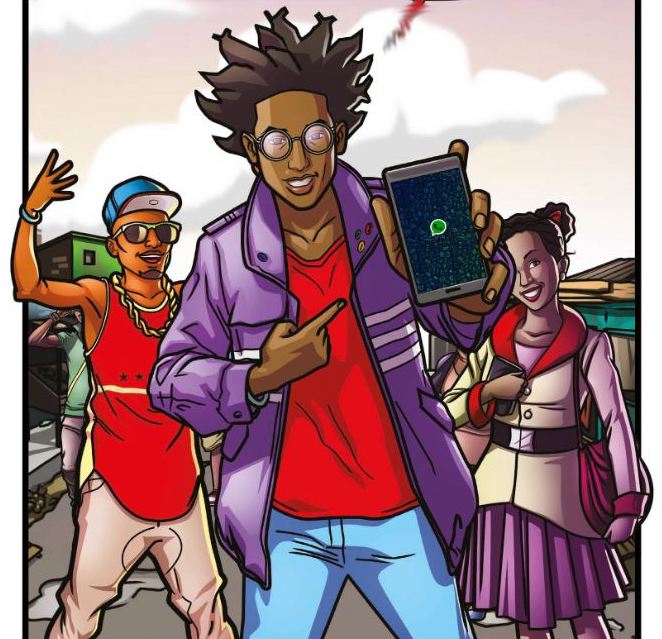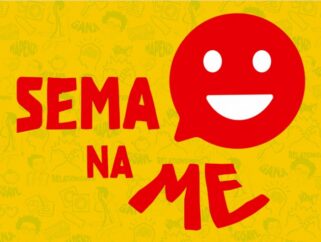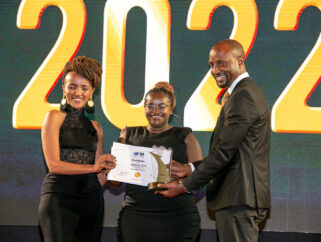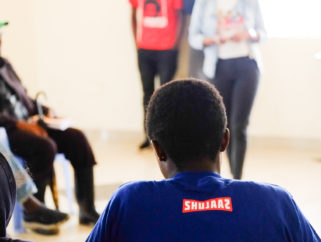Using WhatsApp to learn what’s up [ARCHIVE]
- Tech & Innovation
- 12 Jun 2018

Our Knowledge and Learning team conducts another exciting experiment with data collection in the digital space.
As technologies become an essential part of our lives and self-expression, researchers are also exploring data collection opportunities offered by the digital world to complement tradition/analogue-based methodologies. Face-to-face data-collection methods (surveys, interviews, Focus Group Discussions(FGDs)) have been dominating the research field for a long time, but not anymore. The past few years have seen the emergence of new techniques relying on the digital data – e.g., email and SMS surveys, chat-box conversations, social/digital listening, etc.
Different organizations go through different paths when exploring digital data-collection methods; for Well Told Story (and Shujaaz media) the transition was a natural next step capitalizing on all the activities we’ve already been doing in the digital space (e.g., SMS analysis, Facebook and Twitter polls, WhatsApp chats) to engage our audience in a collective discussion on sensitive issues – an objective central to the Shujaaz Theory of Change.
1. Good planning — Proper planning is crucial for any research activity, especially when dealing with youth – a group notorious for their spontaneity and the gift of “crushing” researchers’ expectations. Adding WhatsApp in the mix – a platform with “revolving door” for the participants to come, go, stay and say as they wish — initially threw our research into a havoc. We had to pause, regroup and rethink our approach and plan for giving up control (and comfort that comes with it!) and let the discussion flow. We resorted to guiding the general direction of the conversation but not the details.
2. Timing – this is another element of planning that needs to be carefully thought through – when do you do digital FGDs? When meeting with people in the field, a researcher can define the location and time of the meeting, but not online. Based on our previous studies, we learned that young people are more likely to spend time online in the evening, after 6pm (see our post on the Sunset Internet). Hence, we had to ensure that most of our discussions also happened in the evening.
3. Establishing rapport – We all know the importance of building rapport with research participants to get deep and truthful insights. But how can we do it with a large group of people only connected to us digitally? Shujaaz main character – DJ Boyie – had to become the moderator for the WhatsApp FGDs. His participation in the group made fans feel confident and engage on a deeper level.
4. Research team – The composition and size of the research group for such a dynamic platform as WhatsApp is very important. We realized that a focus group, which can be handled by two people in the field, requires as a minimum 3 people in the digital space. Hence, we had two facilitators, who worked alongside DJB to introduce subtopics according to the FGD script.
5. Creative moderation – Unlike with an analogue FGD, engaging the entire group of “digital” discussants in a conversation on the same topic at the same time is a challenge. In addition to dropping in and out of the conversation, our participants tended to veer off topic. As a moderator, DJB had to be conscious on when to allow the discussion to deviate and when to steer it back to the main issue.
6. Thorough interpretation – The key challenge of online discussions, as mentioned earlier, is just that – they are online, which means researchers have to “fill in the gaps” due to the inability to see the participants’ facial expressions, mimic, body language, etc. Shorthand talking and emoji were also not very helpful in our study because they can be misused or misinterpreted by either the sender or the recipient. Our approach then was to have all researchers in the team to interpret the conversations independently, and then together – also enlisting the support from the larger team – to ensure there is agreement among a group of people of the interpretation of the findings.
While data collection on WhatsApp is a challenge, it also offers a number of benefits to a researcher: (1) it is cost effective, (2) you can select a heterogeneous sample of participants which yield a universal view of the topic under investigation, and (3) you can simultaneously engage people from several locations. It also has a number of limitations, for example, WhatsApp discussion will not be appropriate for those illiterate, those without smartphones, or the older generation. Just like any research approach, a digital focus group has its pros and cons.
But all challenges and benefits aside, we believe that by making our first digital FGDs happen we just opened the door into the future of research, the new and exciting space with lots of new knowledge and new skills to gain. And we are very eager to learn.



![ICT4D: They say, billions of dollars will be unleashed by the global digital economy in the next 3-5 years [ARCHIVE]](https://www.shujaazinc.com/wp-content/uploads/2019/12/BKM_0626-copy-321x242.jpg)
![“Humanity will change more in the next 20 years than in the previous 300 years”. [ARCHIVE]](https://www.shujaazinc.com/wp-content/uploads/2019/12/BKM_0618-321x242.jpg)
![Keeping up with the pace of global digital transformation [ARCHIVE]](https://www.shujaazinc.com/wp-content/uploads/2019/12/BKM_0594-321x242.jpg)